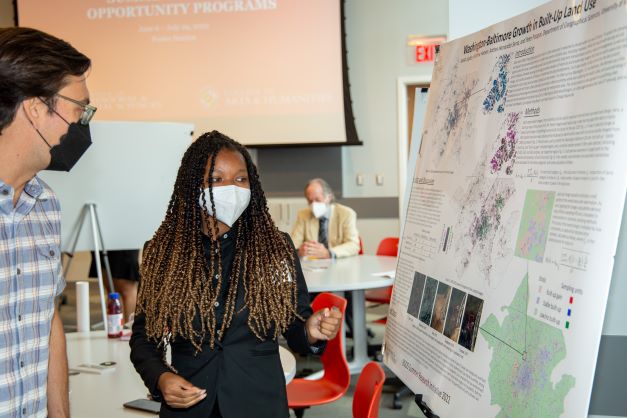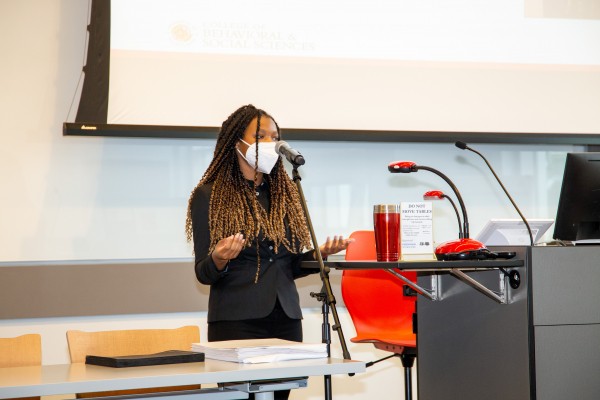GEOG Student Investigates Urban Expansion in Washington-Baltimore Area Through BSOS SRI Program
Jaelah Jupiter, a rising senior at UMD majoring in computational Earth observation science, was one of 14 students to participate in this year’s College of Behavioral and Social Sciences (BSOS) Summer Research Initiative (SRI). Through the program, aimed at increasing the number of underrepresented minorities pursuing graduate degrees in social, behavioral, and economic sciences, Jupiter partnered with UMD’s Global Land Analysis and Discovery (GLAD) Lab to study urban expansion in the Washington-Baltimore-Arlington area over the last three decades.
Jupiter, a proud GEOG undergrad, has been a fan of the geographical sciences from a young age. “I remember making elevation maps out of flour and salt in elementary school,” they said. But it wasn’t until taking introductory GIS and remote sensing courses at UMD—halfway through a degree in environmental science—that Jupiter rekindled their enthusiasm for geography.
This summer, working under the guidance of Matt Hansen, professor of geographical sciences and Co-Director of GLAD Lab, Jupiter used a remote sensing-based approach to quantify urban expansion in the Washington-Baltimore-Arlington area from 1985-2020. “The global urban population is expected to double in the next thirty years, and we need information about how fast urbanization is occurring, as well as what is being built and where,” said Jupiter.
By analyzing Earth observation imagery from satellites, Jupiter found that the region of study saw a 57% increase in land occupied by human-made structures during the 35 year interval. This information, according to Jupiter, can be used to assist with smart urban planning that prioritizes the health and safety of people and the environment while supporting a vibrant economy. They also noted that their method for quantifying urban expansion can be applied to other cities and even nationally to show large-scale changes in urbanization over time.

Beyond the research experience, Jupiter lauded the SRI program’s mentorship and networking opportunities. “SRI exposed me to a network of professionals in a variety of fields who were more than willing to talk honestly about their experiences, give advice specific to the behavioral and social sciences, and extend their expertise beyond the SRI program,” said Jupiter.
In their last year at UMD, Jupiter, who plans on pursuing a graduate degree in remote sensing, will continue to refine their summer research with GLAD, as well as work for the Department of Resident Life to help foster a welcoming and diverse community on campus. Though the summer is over, the SRI experience is one that will stay with Jupiter for a long time. “It was extremely valuable to connect both professionally and personally with other members of the program who had similar graduate plans to mine. It was a truly unforgettable experience,” said Jupiter.
Published on Thu, 08/25/2022 - 11:11


